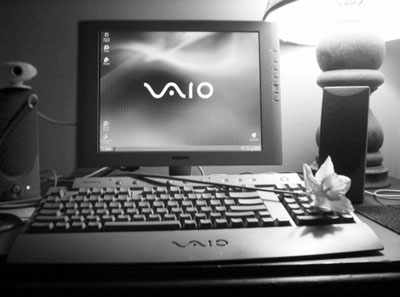All Nonfiction
- Bullying
- Books
- Academic
- Author Interviews
- Celebrity interviews
- College Articles
- College Essays
- Educator of the Year
- Heroes
- Interviews
- Memoir
- Personal Experience
- Sports
- Travel & Culture
All Opinions
- Bullying
- Current Events / Politics
- Discrimination
- Drugs / Alcohol / Smoking
- Entertainment / Celebrities
- Environment
- Love / Relationships
- Movies / Music / TV
- Pop Culture / Trends
- School / College
- Social Issues / Civics
- Spirituality / Religion
- Sports / Hobbies
All Hot Topics
- Bullying
- Community Service
- Environment
- Health
- Letters to the Editor
- Pride & Prejudice
- What Matters
- Back
Summer Guide
- Program Links
- Program Reviews
- Back
College Guide
- College Links
- College Reviews
- College Essays
- College Articles
- Back
Janelle Monae's 'Dirty Computer' is Ambitious & Outspoken MAG
Janelle Monae’s third studio album has enough ideas for three concept albums. At turns, Monae examines racism, sexism, and technology. “Dirty Computer” evokes Outkast’s epic double album “Speakerboxxx/The Love Below” – but not because “Dirty Computer” is a double album, and not even because every song is filled with clever raps and a ’70s R&B influence. Rather, the record resembles OutKast’s because it demonstrates a breadth of musical influences and establishes Monae as one of the foremost innovators of her genre, with one ear cocked toward the past and another toward the future. One need only listen to the hypnotic title track, a Brian Wilson collaboration that consists of gorgeous ’60s-flavored harmonies paired with a thoroughly modern electronic beat, to see that Monae is as interested in the 20th century as she is in the 22nd.
Of course, no one said that it’s easy to innovate, and it’s not always easy to listen to innovation either. Although the record serves up a handful of listenable, straight-up pop/R&B cuts, Monae often goes on genre-bending tangents, with complex sermons on racism and politics nestled in otherwise cheeky or dancefloor-ready tunes. These tangents occasionally rattle otherwise flawless songs, as in the case of the poppy, Charli XCX-esque “Screwed,” which features a guest verse from Zoe Kravitz, a Gloria Steinem reference, and superb double-entendres that could be interpreted as mockery of society’s hypersexualization or of the world’s current, uneasy state. Unfortunately, appended is a jarring, rapped tirade on Donald Trump’s alleged collusion with Russia and his affection for Coca-Cola. Monae’s delivery is faultless and the lyrics ooze with her signature frank wit, but whereas the rest of the song has the potential for timelessness (won’t bigotry and disaster always occur in some form?), the rap verse essentially marks the song with a date-stamp.
That’s not to say that Monae’s rapping is consistently unwelcome. On the contrary, the straight-up hip-hop and rap songs here are some of the best on the album. “Django Jane” is a scathing, electronica-tinged diatribe that takes down racism and sexism with vigor and wit: “Remember when they used to say I look too mannish/ Black girl magic, y’all can’t stand it!” she roars. Meanwhile, on “I Like That,” ethereal harmonies mesh with empowering lyrics (“I don’t care what I look like, but I feel good”) before she launches into a laid-back rap verse in which she exacts her revenge on a grade-school bully.
Lucky for listeners, Monae recognized that the album would be a serious downer if every song dealt a slew of political comments and snappy comebacks. “Computer” occasionally turns instead toward love and desire. Even when Monae explores well-trodden pop territory, she puts a distinct spin on them. “Take a Byte” overflows with witty wordplay and could sound painfully cheesy, but Monae turns it into a tale of longing and forbidden love. (The Toto “Africa”-ish backing track doesn’t hurt, either.) “Crazy, Classic, Life” takes a look at the clichés surrounding life in Hollywood: “I just wanna party hard,” Monae professes unconvincingly, after a Martin Luther King, Jr. sample introducing the song. Soon enough, of course, the song morphs into a mockery of the “high life,” and features – surprise! – another rap verse, once again fiery, galvanizing, and utterly Monae-ish. And then there’s the hit “Make Me Feel,” a delicious, modernized take on Prince’s guitar-fuelled ’80s work. If “Kiss” were recorded today, “Feel” is exactly what it would sound like, down to the throbbing guitars and the stripped-back chorus.
“Dirty Computer” still feels like a double album in terms of sheer depth, and it’s difficult to listen to in one sitting. The ethereal synthesizers, the ’80s guitars, the grinding beats, the tales of bigotry, the abundant wordplay, and the earnest raps at times tower so high they threaten to topple and bury each other. Further, the album places too heavy an emphasis on mockery of specific public figures. Although the barbs make the record timely and are sure to delight her liberal fans, Monae’s criticism of specific people as opposed to philosophies makes it unlikely that the album will have the same resonance in the future. Regardless, “Dirty Computer” demonstrates Monae’s tremendous ambition and keen knack for wordplay – two traits that cement her status as a soon-to-be icon.

Similar Articles
JOIN THE DISCUSSION
This article has 0 comments.

Monae's Third Album is Steadfastly Her Own, and as Galvanizing as the Figures She Takes Aim At